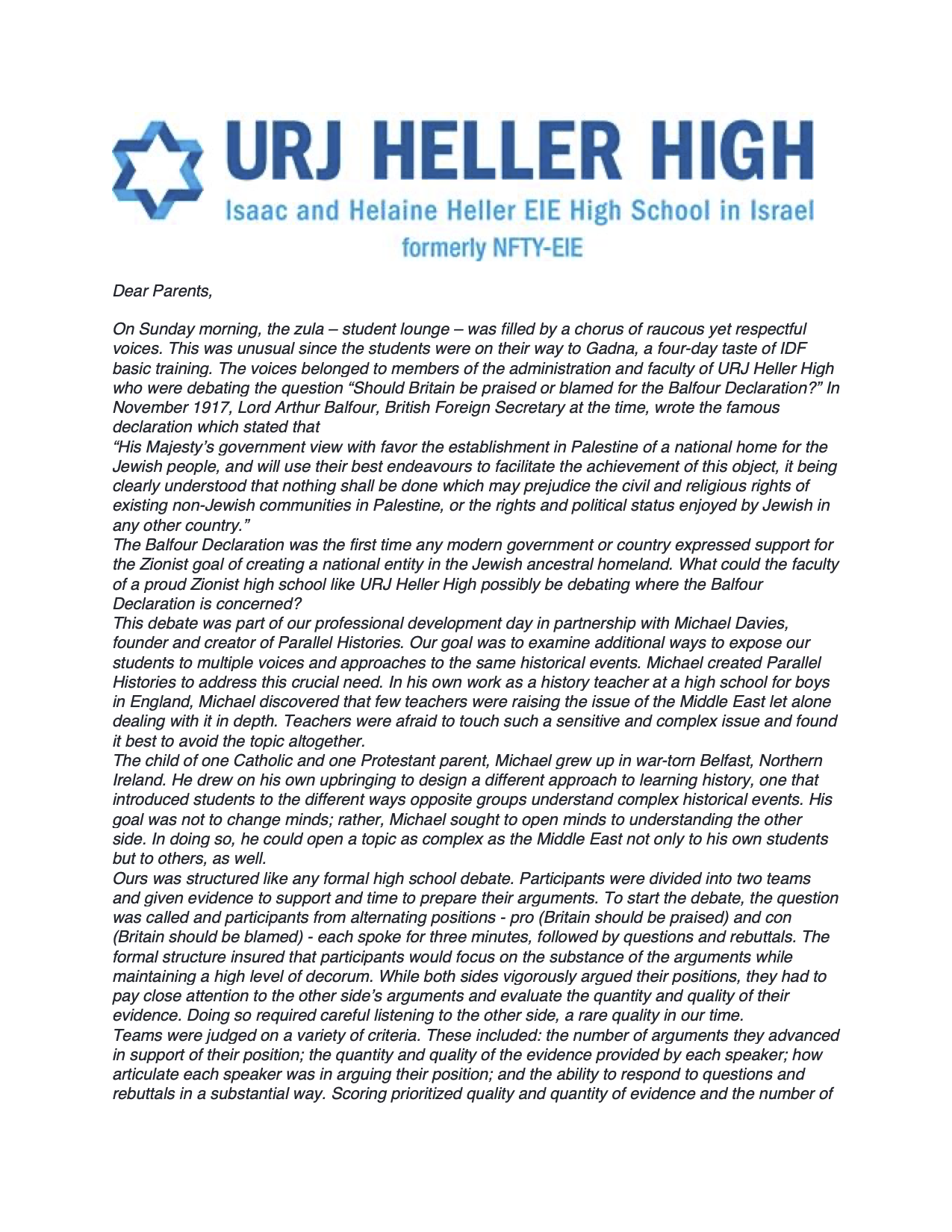Dear Parent: why your child is learning histories not history
SOMETIMES WE GET ASKED BY TEACHERS PLANNING TO USE THE PARALLEL HISTORIES TEACHING METHOD IF WE HAVE A SAMPLE LETTER TO SEND HOME TO PARENTS EXPLAINING WHAT THE PROGRAMME INVOLVES AND WHAT THEIR CHILD WILL BE DOING.
This is often a good idea, especially when the history of the conflict you are going to be teaching is one that still resonates in the wider school community: examples would include the contested histories of Israel and Palestine, the Troubles in Northern Ireland, the conflict between Sunni and Shi’a and even the competing nationalist and unionist history of the Union between England and Scotland in 1707 – all topics Parallel Histories has covered.
What you don’t want to happen is for your student to go home with an assignment asking them to study one narrative and a parent to look over their child’s shoulder and draw the conclusion that this is the only narrative they are studying. That’s a recipe for a concerned email to the school office complaining about teacher bias.
So, an early letter home explaining why you are going to teach two opposing historical narratives and laying out the benefits to the student, may well stop any trouble before it happens.

A couple of years ago we worked with a high school in Israel which was planning to introduce the Parallel Histories approach into their teaching. The headteacher, Loren Sykes, was faced with the task of explaining why he wanted to teach the Palestinian perspective as well as the Israeli perspective. What made this harder to justify was that this wasn’t going to be just a one-off examination of current Palestinian demands, but would be a multi-week examination and comparison of both Palestinian and Israeli narratives of the key events that led to the creation of the state of Israel (and didn’t lead to the creation of the state of Palestine), i.e., the Balfour Declaration, the Wars of 1948 and 1967, the Intifadas and the failure of the Peace Process.
What’s more, his parent body was made up of Jewish Americans who had chosen to send their sons and daughters for a semester in Israel precisely because they wanted them to feel part of Israel.
His letter is an excellent example of brave leadership combined with a pragmatic and wise regard for the sensibilities of the parent body, and with his permission here it is in full.
Loren Sykes told me afterwards that he had received nothing but positive responses from the parents. Proof of what a good letter home can achieve!








